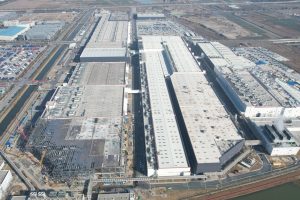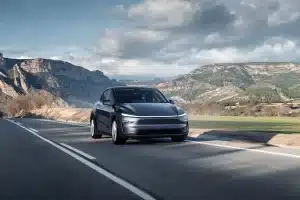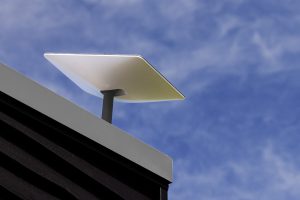Elon Musk’s recent appearance at the Wall Street Journal’s CEO Council Summit included several notable insights from the Tesla and SpaceX executive. Musk covered numerous topics during his interview, from the Cybertruck’s updates to the purpose of the Tesla Bot. Musk also shared some of his more direct thoughts about the US government’s upcoming EV incentives, which heavily favor union-built electric cars such as the Chevy Bolt EV, as well as the idea of billionaires and how they are taxed.
When asked about the Biden administration’s plan to support the buildout of EV chargers across the country, Musk argued that he actually believes there should be no subsidies. The Tesla CEO noted that government support for the buildout of electric car chargers is “unnecessary.” He also called for the Biden administration’s EV incentive plan to be deleted. Musk added that since the beginning, Tesla has not pushed for EV subsidies, and even the $7,500 tax credit that the company maxed out was mostly due to GM’s lobbying in the past.
“Unnecessary. I mean, do we need support for gas stations? So there’s no need for this support for a charging network. I’d delete it. I’m literally saying get rid of all subsidies. And also for oil and gas… Maybe (Tesla’s competitors) need it. I don’t know. But I think just generally, I’m in favor of deleting subsidies. When we started Tesla, there were no EV subsidies at all, and gasoline was super cheap. We did not anticipate any subsidies; that came later. The $7,500 tax credit came as a result not because of Tesla’s activity but because of General Motors’ lobbying. So I would just say delete them all,” Musk said.
Apart from discussing EV chargers and incentives, Musk also spoke about the billionaire class, stating that even if all billionaires in the United States are zeroed out, it will not solve anything if the government does not improve its spending. Musk then shared some of his ideas about how billionaires should be taxed.
“First of all, I pay a lot of tax. My marginal tax rate is like 53%. That’s not trivial. Obviously, there’s asset-based taxes, the sales tax, and everything else. There’s also the estate tax. Generally, I think the estate tax is a good tax. If you think of assets beyond a certain level, that are far beyond let’s say, somebody’s ability to consume, then at some point what you’re really doing is capital allocation.
“So it’s not money for personal expenditure. It does not make sense to take the job of capital allocation away from people who demonstrate great skill in capital allocation, and give it to an entity that has demonstrated very poor skill in capital allocation, which is the government. I think of the government essentially as a corporation. It is simply the biggest corporation with a monopoly on violence, and where you have no recalls,” Musk said.
Musk is currently in the process of selling some of his personal TSLA shares. As of date, Musk has offloaded 10.1 million shares, though he still has about 7 million to sell to complete his target of selling off 10% of his stake in the company. With this, Musk is estimated to pay about $15 billion worth of taxes. Despite this, the CEO is commonly criticized on social media due to his net worth, which has increased amidst Tesla’s rise in the market.





